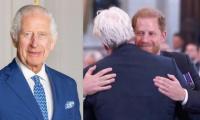KARACHI: A top aide to US President Donald Trump has claimed that Trump’s use of tariffs and trade incentives was instrumental in brokering the ceasefire between India and Pakistan, warning that curtailing presidential power could undermine regional security and derail future diplomatic efforts.
US Commerce Secretary Howard Lutnick made the assertion in a legal filing submitted to the US Court of International Trade (CIT) on May 23. The filing was part of the Trump administration’s defence against a lawsuit brought by small businesses challenging the legality of sweeping global tariffs imposed during Trump’s presidency.
The tariffs, which affected nearly all US trading partners, were enacted under the 1977 International Emergency Economic Powers Act (IEEPA) — a law intended to address national emergencies. The Trump administration has argued that IEEPA grants the president broad discretion to impose economic measures not just for economic reasons but also as diplomatic and national security tools.
“This ceasefire was only achieved after President Trump interceded and offered both nations trading access with the United States to avert a full-scale war”, Lutnick stated in the court filing. “An adverse ruling that constrains presidential power in this case could lead India and Pakistan to question the validity of President Trump’s offer, threatening the security of an entire region and the lives of millions.”
While Pakistan has acknowledged Washington’s role in defusing tensions, India has strongly denied that any international mediation was involved. Indian Foreign Minister S Jaishankar has publicly maintained that the truce was the result of direct talks initiated by the Pakistani military.
The claim marks the first time Trump’s administration has cited trade leverage as a peacekeeping tool in an official court document. However, Trump had previously alluded to it publicly and on his social media platform, Truth Social.
On May 10, Trump was the first to announce what he called a US-brokered ceasefire between the two nuclear-armed neighbours. “Not even discussed, I am going to increase trade, substantially, with both of these great Nations”, he posted a day later, linking trade access to the de-escalation. Two days later, he claimed at a White House event: “I said, come on, we’re gonna do a lot of trade with you guys. Let’s stop it. Let’s stop it. If you stop it, we’ll do a trade. If you don’t stop it, we’re not gonna do any trade.”
Despite Indian resistance to Trump’s narrative, his administration has continued to double down on the link between trade and peace in the ongoing legal battle.
The lawsuit before the CIT argues that the IEEPA does not authorise the imposition of tariffs for routine trade matters, and should be reserved for “unusual and extraordinary threats.”
In addition to Lutnick, the court received statements from US Trade Representative Jamieson Greer, Treasury Secretary Scott Bessent and US Secretary of State Marco Rubio, all supporting the view that IEEPA tariffs are a vital part of the president’s foreign policy toolkit.
Lutnick also cited China as a success story for Trump’s tariff strategy, claiming that punitive levies “applied additional pressure” on Beijing to lower its own tariffs on US goods and return to the negotiating table.
DSP Gambat Malheer Khan Patto said that robbers were looting vehicles near Baharo Khairpur-Larkana Road
Muhammad Ali Saif that PTI had stood firmly with Pakistan Army, nation and government against Indian aggression
They were protesting against arrest of PTI founder Imran Khan
US Secretary of State Marco Rubio vowed on Wednesday to “aggressively” revoke visas to students from China
Court expressed anger over Bushra Bibi’s move and remarked that accused was being given a chance
Ceremony came amid relentless attacks on university by Trump administration







